In the war of CPUs, AMD has been hovering around at the second place for quite some time. And Ryzen series processors have been the real Hero on AMD’s side having achieved a hallmark in performance benchmarks. Although Intel leads some gaming areas, this leading position can easily be replaced with the advent of third generation Ryzen CPUs. Whats more exciting is the partnerships AMD has entered into with Google for their upcoming game streaming platform “Google Stadia” and Microsoft partnership for the next XBox gaming console.
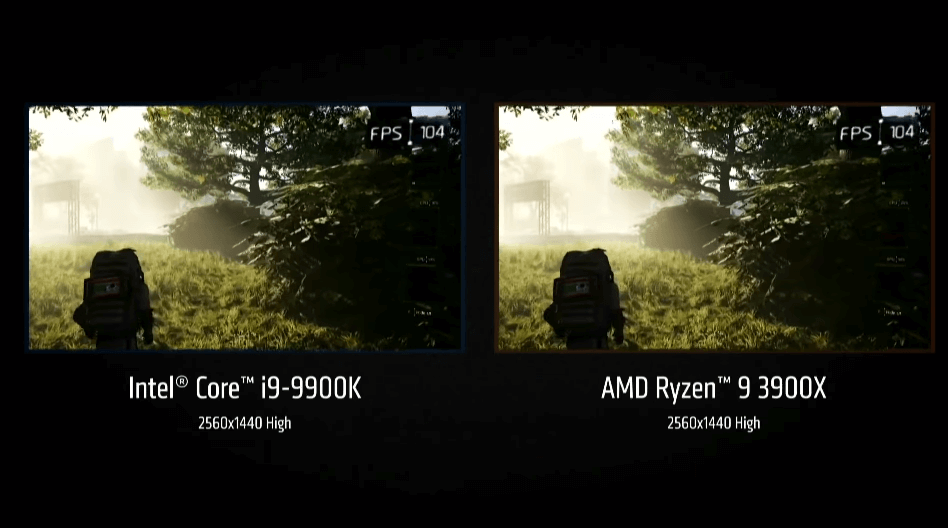
AMD has scored over competition with its Zen 2 architecture along with the leading edge 7nm process technology. This difference in architecture has allowed AMD to stand alone in CPU race. Ryzen 3000 series offer large improvements over the 2000 series. The 3000 series is in competition with intel’s best versions. While a few years ago, its was hard to imagine that the 1000-series Ryzen processors would create such an impact in the world full of Intel, but that version was just a beginning of glory of Ryzen. While AMD kept at it, they brought the next in the line series i.e. 2000 series, which was also a success. Now Ryzen 3000 is almost at the anvil, release date announced for July 7, 2019. These newer chips are an evolving revolution, which will go as an innovation in the CPU history. If this innovation stands ahead and intel still struggles with its 10mm CPUs, then Ryzen 3000 series is a sure March to the Top for AMD.
Let’s get to know more about the third generation Ryzen CPUs.
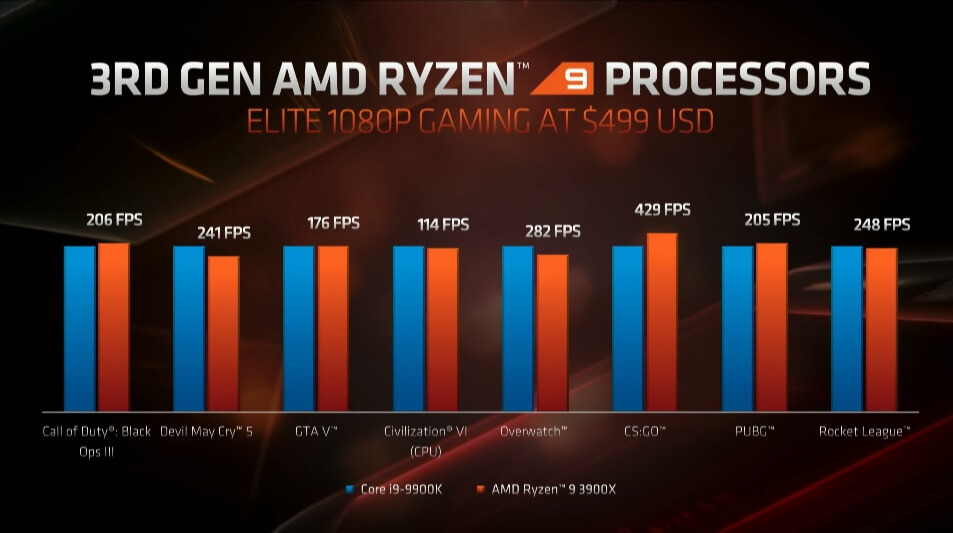
Performance of 3rd Generation Ryzen
In a demo at CES 2019, AMD displayed its 3000-series processors, running with a Radeon 7 GPU. The new chipset will support all of the latest standards and these 7nm chips will be included among first desktop processors that will support PCIe 4. The battery consumption was another feature that impressed the spectators. This chip consumed far less power than Intel’s equivalent processor. The percentage difference was almost 30%, as intel processor has complex requirements in comparison to AMD. Core i9-9900K needs a high end motherboard to function. It needs a larger power supply, a cooler to set the processor at an optimum performance level. In comparison to this, a Ryzen processor has much flexible requirements. It needs a much lower power consumption so ultimately it will result to be quite cheaper relatively to design a system around these chips.
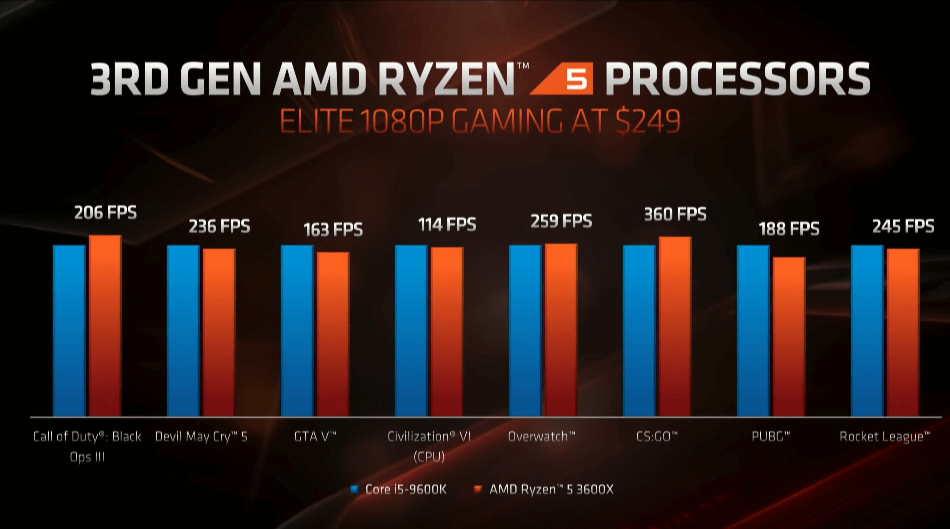
The third generation Ryzen processor has a multi-chiplet arrangement, which comprises of 8-core 7nm chiplet. This chiplet is then further connected to a 14 nm Input/ Output die. A rumor has also floated that a 16-core variant is also in progress. Currently, AMD is using 2nd generation infinity fabric. It helps to adjust and keep the areas in a chip that don’t scale properly. These areas include micro-controllers and Input/ Output, not only these are the uses but also this innovation in design and architecture will bring many heterogeneous architectures in the computer industry.
The design of this chip series is innovative and latest that works in an optimized way. AMD’s first generation processors came into radiant with their latest design of the core but unfortunately, it resulted in lower performance than the expected initial results. AMD managed to make an effort to resolve this issue with mainstream desktop chips that was eventually a big hit.
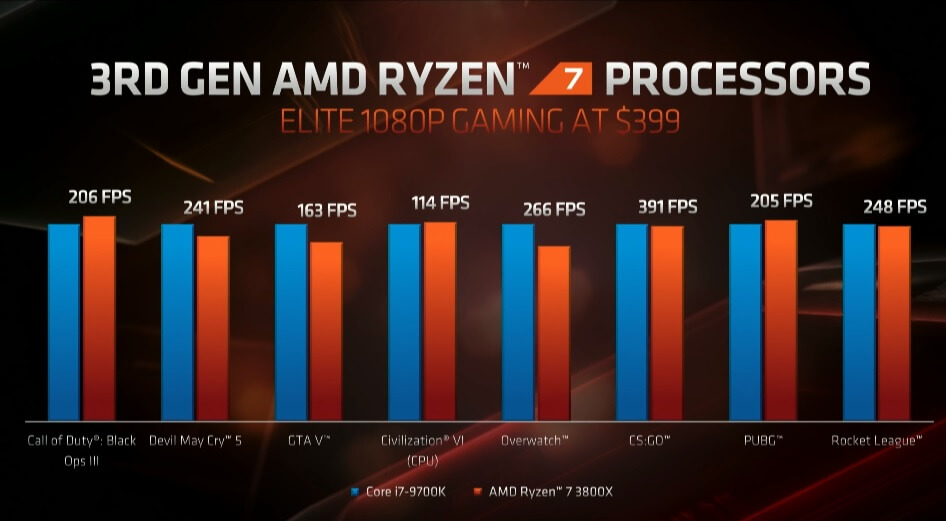
PCI express 4.0 support
The new processors are very much compatible with the motherboards that were designed for the first- generation computers. Therefore, the new motherboards will be needed to support PCIe 4.0 standards. The older motherboards were capable of supporting PCIe 4.0*16 connection in their first slot on a motherboard. PCIe support faster signaling rate, that means PCIe slot that is closet to CPU will support PCIe 4.0 with all other remaining slots will run at PCIe 3.0.
AM4 Socket
As per claimed by AMD, it will be providing AM4 CPU socket compatibility. This helps a user to use any AMD Ryzen Processor on AM4 motherboard. AMD’s support to AM4 motherboard is quite promising and long-lived. This has attracted many technology enthusiasts. AMD in collaboration with the motherboard companies have been working lately to satisfy their customers in a best possible way. The AM4 socket is capable of supporting two channels of DDR4 memory. This implies that new chips will be having a dual-channel memory controller.
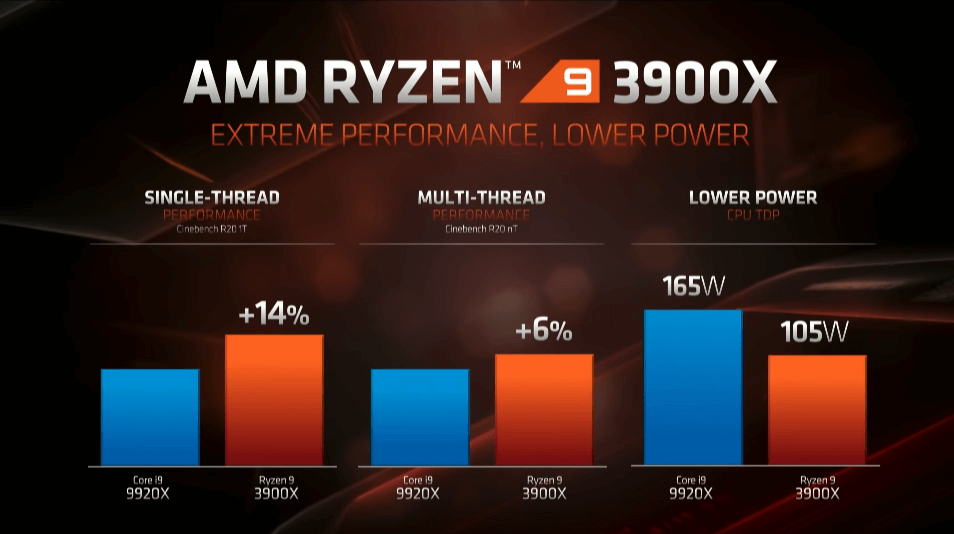
7nm Process
For Ryzen 3000 series, the company has not given its word in regard to the usage of 7nm Process. They claim that 7nm process will offer 1.25 times the performance while using same power. ADM’s CTO believe that 25% increase in performance will occur with the involvement of new process.
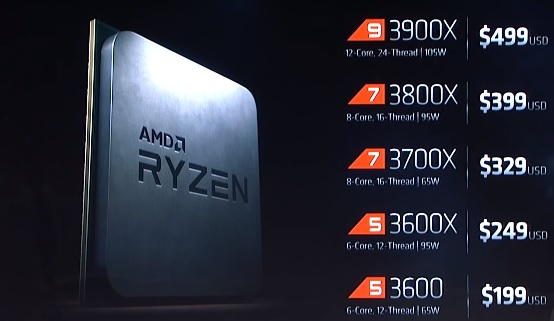
It all boils down to price for sensitive customer and AMD has not left any stone unturned to deliver best of performance at best of price points. AMD’s move to produce 7nm chips even before Intel’s 10nm chip launch has brought a great attention in the IT industry. The innovative 3000 series will help the company compete with biggest of rivals of our times in an efficient manner, bringing a drastic change in the history of processor market.
loading...
loading...
